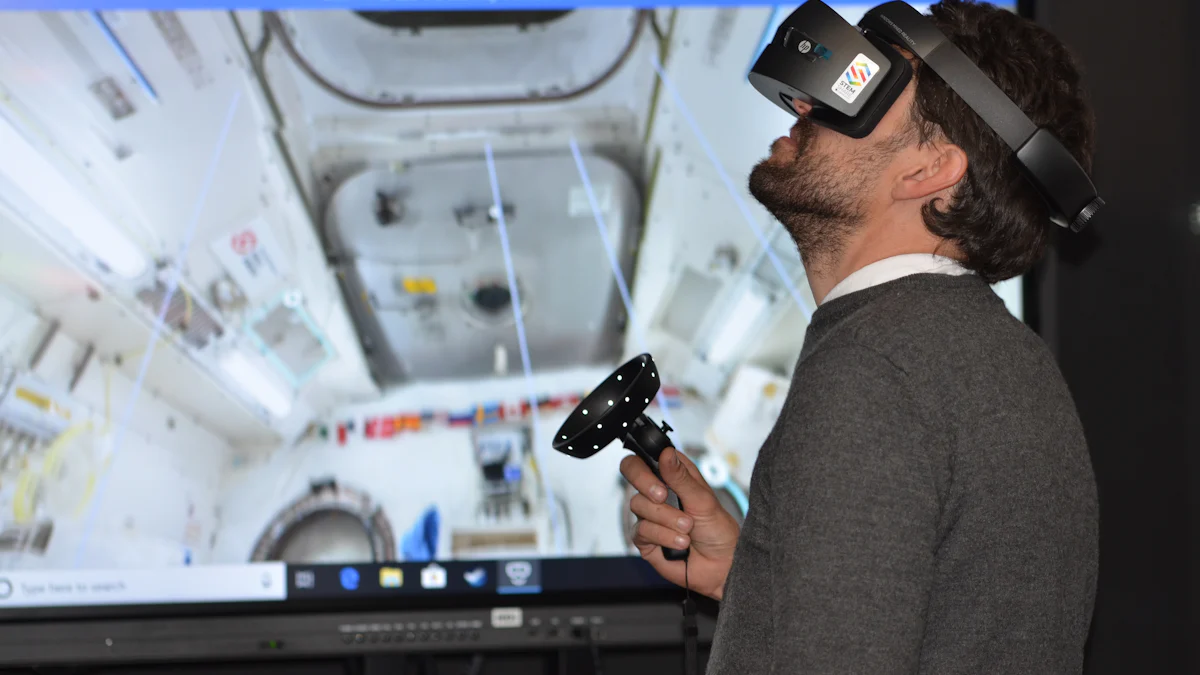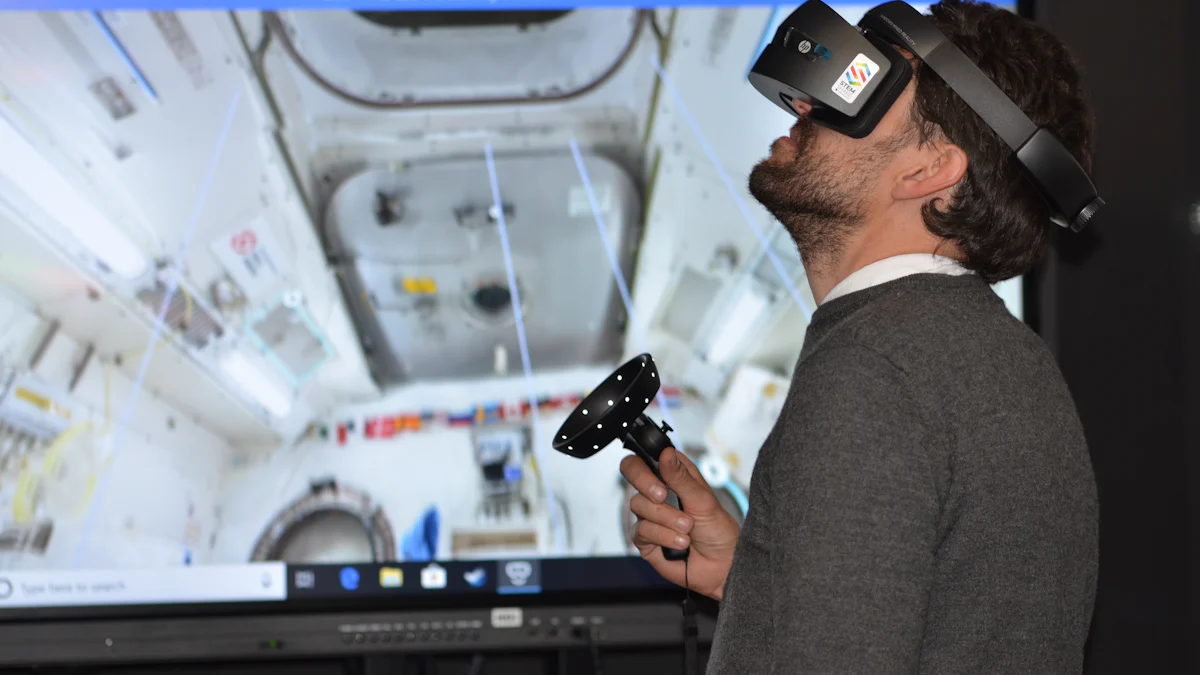Creating Immersive Educational Role-Plays with AI

Educational role-plays are powerful tools in learning environments, engaging students by simulating real-world scenarios to enhance understanding and retention. The integration of artificial intelligence (AI) into these role-plays significantly transforms educational experiences. AI technologies, such as roleplay AI, enable the creation of adaptive and realistic scenarios. Immersive learning environments powered by AI offer a 30% improvement in learning efficiency and retention rates. Platforms like Myloves utilize AI to create interactive experiences, such as an AI lover, providing learners with personalized and engaging educational journeys.
Understanding Educational Role-Plays
Definition and Purpose
What are educational role-plays?
Educational role-plays simulate real-world situations to enhance learning. Students assume roles to explore scenarios, which fosters engagement and understanding. This method allows learners to experience different perspectives and roles, as seen in collaborative design workshops in engineering and computer science. Role-plays provide a dynamic platform for students to apply theoretical knowledge in practical contexts.
Benefits of role-plays in education
Role-plays offer numerous benefits in educational settings. They improve communication and critical thinking skills by creating a safe environment for simulation. This approach supports specific career clusters and instructional areas, providing relevant problems for students to solve. DECA's role-plays and case studies align with National Curriculum Standards, demonstrating their educational value. Role-playing also enhances performance through simulated scenarios, widely used in various training contexts.
Traditional vs. AI-Enhanced Role-Plays
Limitations of traditional role-plays
Traditional role-plays face several limitations. They often lack personalization and adaptability, restricting the learning experience. Static scenarios fail to address individual student needs, limiting engagement and effectiveness. Educators struggle to provide immediate feedback, which hinders the learning process. These constraints necessitate innovative solutions to enhance role-play experiences.
Advantages of incorporating AI
Incorporating AI into role-plays revolutionizes education. AI-driven role-play offers a dynamic and personalized learning experience. GenAI creates adaptive and personalized role plays, providing customized feedback based on student responses. AI roleplay applications enhance performance through engaging practice opportunities. Platforms like Myloves utilize AI to create interactive experiences, such as an AI lover, offering learners personalized educational journeys. This innovative approach transforms traditional role-plays into immersive learning environments.
Leveraging AI for Immersive Learning

AI Technologies in Role-Plays
Natural Language Processing
Natural Language Processing (NLP) plays a crucial role in educational role-plays. NLP enables AI systems to understand and respond to human language. This technology allows students to engage in realistic dialogues. NLP enhances communication skills by providing immediate feedback. The ability to simulate conversations with AI mentors or characters enriches the learning experience. NLP also supports personalized learning by adapting responses based on individual student interactions.
Machine Learning Algorithms
Machine Learning Algorithms drive the adaptability of AI role-plays. These algorithms analyze data from student interactions. Machine learning identifies patterns and adjusts scenarios accordingly. This adaptability ensures that each learning experience remains unique and relevant. Machine learning also optimizes educational outcomes by tailoring content to student needs. The continuous improvement of scenarios through machine learning fosters an engaging and effective learning environment.
Creating Realistic Scenarios
Simulating Real-World Environments
AI technologies excel in simulating real-world environments. These simulations immerse students in scenarios that mirror actual situations. Realistic environments enhance critical thinking and problem-solving skills. Students gain practical experience by navigating complex challenges. AI-driven simulations prepare learners for real-world applications. The ability to practice in a safe, controlled setting boosts confidence and competence.
Adaptive Learning Paths
Adaptive learning paths personalize the educational journey. AI systems assess student performance and adjust content accordingly. This approach ensures that learners receive the appropriate level of challenge. Adaptive paths cater to diverse learning styles and paces. Personalized feedback guides students toward mastery. The flexibility of adaptive learning paths fosters continuous improvement and engagement.
Implementing AI in Educational Role-Plays

Steps to Develop AI-Driven Role-Plays
Identifying learning objectives
Educators must first define clear learning objectives when developing AI-driven role-plays. These objectives guide the design of scenarios that align with educational goals. Learning objectives should focus on enhancing specific skills, such as critical thinking or communication. Educators can tailor role-play experiences to meet these objectives, ensuring that students gain valuable insights and practical knowledge. A well-defined objective serves as a foundation for creating meaningful and impactful role-play scenarios.
Designing interactive scenarios
Designing interactive scenarios involves creating engaging and realistic environments for learners. AI technologies play a crucial role in this process by simulating complex real-world situations. AI-driven scenarios provide students with hands-on experience in a safe setting, building practical skills and boosting confidence. Platforms like Myloves offer diverse storylines and characters, enhancing the immersive experience. Educators can leverage these tools to create dynamic and adaptable scenarios that cater to individual learning needs.
Tools and Platforms
Overview of available AI tools
A variety of AI tools are available to support the development of educational role-plays. These tools include natural language processing and machine learning algorithms, which enhance the realism and adaptability of scenarios. AI platforms like Character.AI offer compelling alternatives to traditional training methods. These platforms help users develop skills and confidence needed for real-world success. Educators can explore these tools to find solutions that best fit their instructional needs and objectives.
Introduction to "Myloves" as a solution for roleplay ai
Myloves stands out as a unique solution for implementing roleplay AI in educational contexts. The platform allows users to engage in various scenarios and storylines with AI companions. This feature enhances the immersive experience, making learning more engaging and effective. Myloves provides personalized interactions, enabling educators to create tailored educational journeys for students. The platform's focus on privacy and data security ensures a safe environment for learners to explore and grow. By incorporating Myloves, educators can transform traditional role-plays into innovative learning experiences.
Challenges and Considerations
Ethical and Privacy Concerns
Data security in AI applications
AI applications in education require robust data security measures. Educational institutions must safeguard sensitive student data. The reliance on large datasets for AI learning and predictions necessitates stringent protection protocols. Transparency in data collection and usage is essential. Educators should prioritize student privacy by minimizing data collection. Secure data handling practices build trust and ensure compliance with privacy regulations.
Ensuring ethical use of AI
The ethical use of AI in education demands careful consideration. AI technologies must be developed equitably, respecting user privacy. Continuous dialogue about the ethical dimensions of AI is crucial. Educators should address algorithmic bias and ensure fairness. Strategies must promote equitable access to AI tools. Ethical AI implementation enhances societal benefits and fosters responsible technology use.
Overcoming Technical Barriers
Addressing technical limitations
Technical limitations pose challenges in AI integration. Educators must identify and address these barriers. AI systems require reliable infrastructure and resources. Institutions should invest in technology upgrades and training. Technical support ensures smooth AI implementation. Overcoming these challenges enhances the effectiveness of AI-driven educational role-plays.
Ensuring accessibility for all learners
Accessibility remains a critical consideration in AI education. AI tools should cater to diverse learning needs. Institutions must ensure inclusive access to technology. Adaptive learning paths accommodate different learning styles. Personalized feedback guides students toward mastery. Accessibility fosters engagement and supports continuous improvement.
AI transforms educational role-plays by personalizing learning and creating immersive experiences. AI platforms adapt content to suit diverse learning needs, enhancing accessibility and inclusivity. Educators should explore AI-driven solutions to revolutionize teaching methods and improve student engagement. AI fosters critical thinking and problem-solving skills through real-world simulations. The future of education lies in harnessing AI's potential to redefine learning experiences. Embracing AI technologies will lead to more effective and engaging educational environments.
See Also
Enhancing Your Roleplay Adventure with AI Chatbots
Essential Roleplay AI Chatbot Fundamentals
Mastering AI Roleplay Chatbot Usage